Why ASADA bans, NRL no-fault stand down policy rules don’t stack up
Why is James Segeyaro working night shift to fund his ASADA appeal while Jack de Belin earns $595,000 a year and trains every day with his teammates. The rules don’t stack up, writes David Riccio.
Sport
Don't miss out on the headlines from Sport. Followed categories will be added to My News.
- Welcome to the new sporting capital of the world
- Alliances, scares and the boss: How joint FIFA bid got over the line
Why is James Segeyaro working a night shift at a parking garage to fund his ASADA appeal while Jack de Belin earns $595,000 a year and trains every day with his teammates at WIN Stadium?
Why is Australian swimmer Shayna Jack barred from training at the same pool that an accredited coach is at teaching a few lanes away, yet AFL forward Willie Rioli can train with West Coast after being provisionally suspended for allegedly tampering with a urine sample last year?
This column isn’t about defending proven drug cheats — with emphasis being on the word proven.
Kayo is your ticket to the 2020 NRL Telstra Premiership. Every game of every round Live & On-Demand with no-ad breaks during play. New to Kayo? Get your 14-day free trial & start streaming instantly >
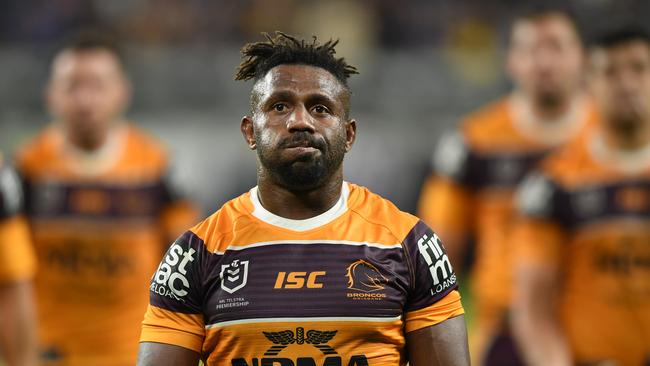
Nobody in their right mind would side with convicted criminals or defend proven dopes.
If found guilty, the cheats deserve every minute of their ban from world sport.
But just like the judicial process, every athlete deserves to be treated as innocent until proven guilty.
There’s an alarming lack of consistency within our biggest sporting codes that is broken and needs to be fixed.
A powerful new agency called Sport Integrity Australia will launch on Wednesday, July 1, and the fractured anti-doping framework of Australia’s biggest sporting codes should be CEO David Sharpe’s priority.
SIA will amalgamate ASADA, the little-known National Integrity in Sport Unit and various functions of Sport Australia — such as child protection — into one body, with the chief executive handed sole discretionary powers.
And if Sharpe can’t fix this, it will be up to the individual sporting bodies, such as the NRL, to address their own inconsistencies.
Because as it stands, the NRL tick-off on a no-fault stand-down policy that provides athletes who stand accused of the ugliest of crimes, including acts of alleged assault against women, daily support of coaches and teammates, a consistent training focus, full pay, routine and flexibility.
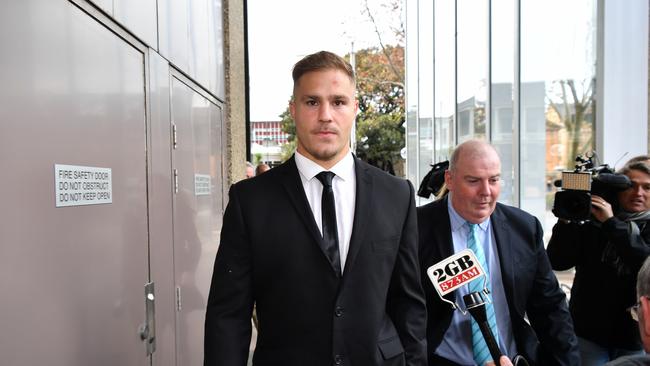
Effectively, the only thing an athlete — as we’ve seen with St George Illawarra’s De Belin who is before the courts pleading not guilty to aggravated sexual assault — can’t do is play the game.
De Belin’s ability to mingle and train on full pay with his club shouldn’t be viewed as a slight on him. He deserves every opportunity to clear his name.
And in no way did he determine the rules of which he’s working under.
But the rules don’t stack-up.
The freedoms he is being provided are in stark contrast to others who are also hellbent on defending themselves, for alleged anti-doping violations.
The NRL’s anti-doping policy is about as flexible as a block of balsa wood.
When Segeyaro or rising Cronulla star Bronson Xerri were handed an anti-doping violation, they were met with immediate isolation, ostracism and abandonment.
So, too, was Jack, who on Friday circled on her calendar the 12-month anniversary since she tested positive to the WADA banned supplement Ligandrol in 2019.
In between dealing with an extortion attempt by overseas hackers, Jack is awaiting an upcoming appeal date with the Court of Arbitration of Sport.
Yet under the NRL and Swimming Australia anti-doping policies, Segeyaro, Xerri and Jack aren’t allowed any contact with either their club, their coach or their teammates. It’s in direct contrast to the no-fault stand down policy.
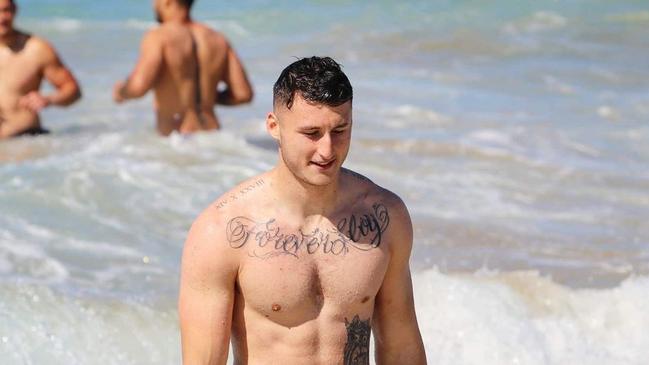
Coaches and players often comment that such is the amount of time they spend together, a training squad or footy club can be closer than family.
The people they see every day are their most-trusted confidantes and in some circumstances their only level of support.
De Belin will tell anyone that will listen how maintaining a daily connection to the Dragons players, welfare department and coaching staff has kept him going.
But for others, such as Xerri, Segeyaro and Jack, if they’re struggling mentally in the process of their immediate suspension from the sport and are in a process of appeal, of which they are now, they’re handed a counselling hotline number to ring.
In the weeks that have followed Xerri’s suspension for alleged steroid use, this column has been told there have been days where the teenager hasn’t wanted to leave his bedroom.
The mere fact is he can’t go far anyway.
The NRL’s anti-doping policy, which is direct verbatim from the WADA’s overarching code, doesn’t allow any player with a violation against their name to interact with anyone involved with them from the sport.
That’s a lot of people.
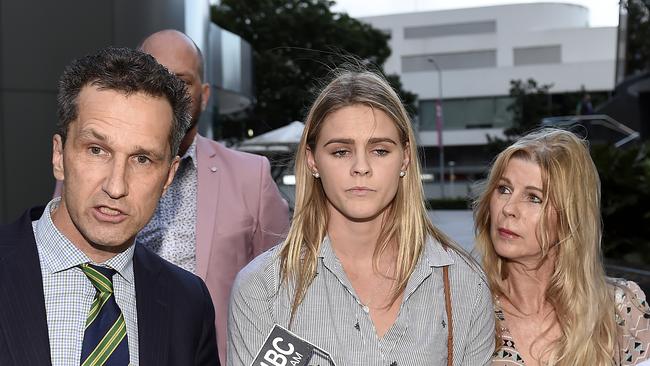
Treating someone like they’re guilty until it’s proven is in direct contrast to the message that ASADA spruiks: that even during an investigation phase, maintaining an individual’s mental welfare is paramount.
It’s part of the reason why the AFL, despite operating under a WADA-approved policy, is silent on the point whether an athlete can train or not.
It allows players such as Rioli to continue to go to work, train and operate within a daily structure of routine and support during his investigation.
They’re the freedoms that come with being innocent until proven guilty.
Just like De Belin.
NEW WATCHDOG TO CUT LENGTHY ASADA INVESTIGATIONS
The head of Australian sport’s new watchdog, Sport Integrity Australia, has vowed to cut the red tape which has led to long-held criticism of ASADA’s prolonged investigation process.
David Sharpe, the first chief executive of the powerful new agency which begins operations on July 1, said at least 30 days of ASADA’s previous process would be lost.
However, Sharpe failed to give any insight as to how long both Bronson Xerri and Cronulla will be forced to continue to wait for an outcome into the teenager’s provisional suspension from last month.
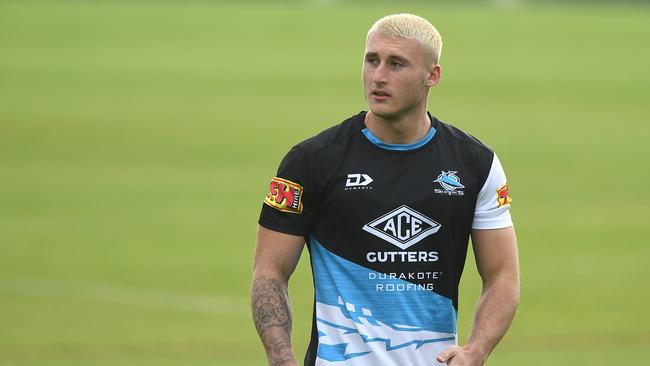
“Within a process you need to prepare briefs, go to that anti-doping violation panel, you then go back to the athlete and they’ve got 10 days to respond, you then prepare a response and go back to the anti-doping rule violation panel,’’ the former assistant commissioner of the Australian Federal Police said.
“In removing them and just making it come to the CEO, the one thing you’re doing is removing at least 30-days out of the process, if not more.
“So you’ve now got a more streamlined process across the board.’’
When asked specifically about the ongoing Xerri case and whether ‘facilitators’ were being investigated, Sharpe replied: “I can’t comment on anything to do with the Xerri case.
“But since my time at ASADA, a key focus of Sports Integrity Australia is keeping facilitators away from athletes and out of sports.
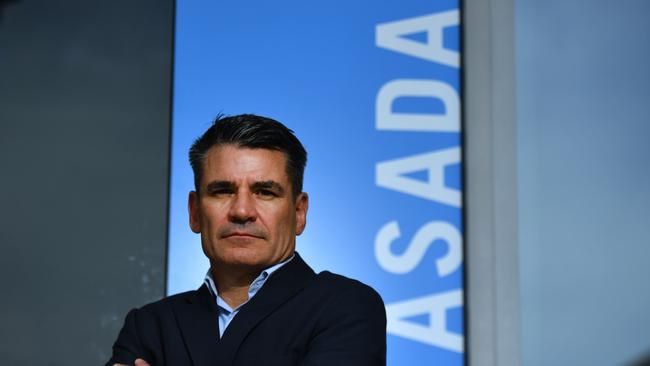
“We’ve copped criticism in the past around delays, but we’re one of the only anti-doping agencies in the world that has the ability to investigate and to take computers and phones to try and find out what caused that athlete to commit the violation they did.
“Has there been an influence that we need to target and get them out of sport? And we continue to expand that ability to target.
“Our priority is not athletes, young people make inadvertent mistakes.
“Others make serious mistakes, but we want to know who is influencing them, that’s where the priority of Sports Integrity Australia is going to be.”
SIA will amalgamate ASADA, the little known National Integrity in Sport Unit, and various functions of Sport Australia — such as child protection — into one body with the chief executive handed sole discretionary powers.

